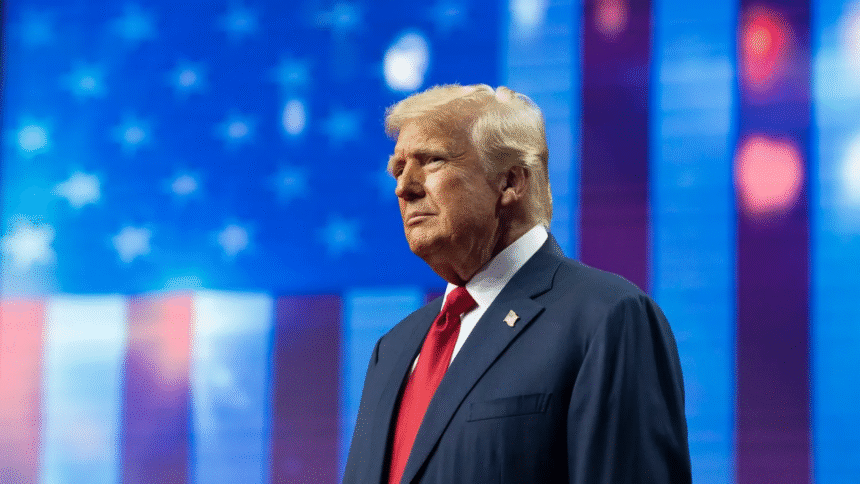The United States Senate today passed President Donald Trump’s plan to enact $9 billion in cuts to U.S. global aid funding and public broadcasters, marking another legislative victory for the Republican president.
With a vote of 51 in favor and 48 against, senators approved Trump’s request for these cuts from expenditures already approved by Congress.
Impact on Global Programs and Public Broadcasting
The majority of these cuts target programs that assist foreign countries in combating diseases, wars, and natural disasters. Crucially, the plan also completely halts the $1.1 billion that the Corporation for Public Broadcasting was slated to receive over the next two years.
President Trump and many Republicans argue that public broadcasting expenditures are unnecessary and criticize their news coverage as biased.
Legislative Context and Previous Delays
Special packages for rescinding funds have not passed in decades, as lawmakers have historically been hesitant to relinquish constitutional control over spending. However, Trump’s Republicans, holding a narrow majority in both the Senate and the House of Representatives, have shown little desire to oppose his policies since the beginning of his second term in January.
The $9 billion in question represents a relatively small sum compared to the federal budget of $6.8 trillion and is only a fraction of the funds approved by Congress that the Trump administration has withheld as it aims for larger cuts. Many of these broader cuts are reportedly mandated by the Department of Government Efficiency (DOGE), led by billionaire Elon Musk. According to Democratic lawmakers, by mid-June, Trump had already blocked $425 billion in previously approved congressional funding.
Further Cuts Expected and Key Exemptions
Despite the scale, Trump and his supporters have promised more “fund rescission” requests in an effort to shrink the federal government.
The House of Representatives passed the fund rescission legislation last month with 214 votes in favor and 212 against, without altering Trump’s original request. Four Republicans joined 208 Democrats in voting against it.
However, after some Republican senators expressed concern about cuts to global health programs, Office of Management and Budget Director Russell Vought announced on Tuesday that PEPFAR, a global program to combat HIV/AIDS initiated in 2003 by President George W. Bush, would be exempted from the cuts. This change reduced the total amount of cuts from $9.4 billion to $9 billion, which will require another vote in the House of Representatives before the measure can be sent to the White House for Trump’s signature.
The fund rescissions must be approved by Friday; otherwise, the request will expire, and the White House will be forced to follow the spending plans previously approved by Congress.
Two of the 53 Republican senators—Lisa Murkowski of Alaska and Susan Collins of Maine—joined Democrats in voting against the legislation. “You don’t have to destroy the entire Corporation for Public Broadcasting,” Murkowski said in a Senate speech. She added that the Trump administration had not guaranteed that the fight against diseases like malaria and polio worldwide would continue. Above all, Murkowski asserted that Congress must preserve its role in determining how federal funds are spent.







